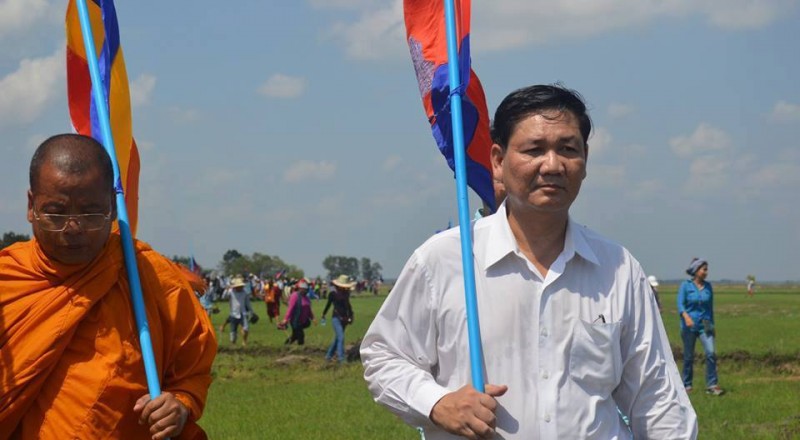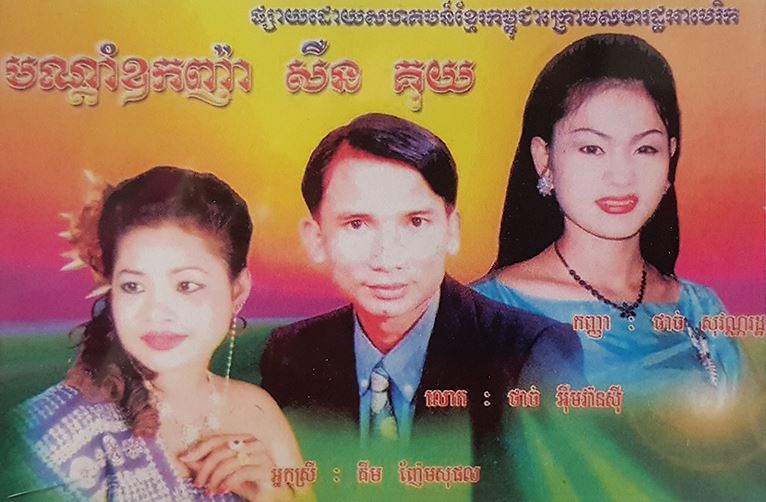Report slams CPP for restricting speech, threatening pluralism
Monday 15th Waning Moon of Phagguṇa B.E.2560, March 27, A.D.2017 Year of the Monkey
The Phnom Penh Post
Election watchdog Comfrel slammed the ruling party for what it characterised as a pattern of political oppression, corruption and a lack of judicial independence in its annual report, released on Friday.
The “government continued a restrictive freedom of expression policy”, the report reads, while “the political atmosphere remained very tense” throughout last year.
The elections monitor criticises the ruling party’s apparent targeting of the opposition Cambodia National Rescue Party (CNRP) with lawsuits, arrests and with the recent amendment to a law on political parties, which gives the Supreme Court power to dissolve any political party whose leadership has been convicted in a criminal case.
These “recent political developments”, it argues, “raise concerns for the future prospects of [meaningful] political pluralism”.
Calling the monitor’s findings “wrong”, Cambodian People’s Party spokesman Sok Eysan pointed the finger at the CNRP for bringing its woes upon itself.
“There is no political tension and there is no political pressure on CNRP,” he said. “What has happened to the CNRP is the result of what the CNRP has done. If any [other] party commits wrong they have to face legal action as well.”
Sam Kuntheamy, the director of election monitor Nicfec, said the report is accurate in its entirety. “The political climate is very tense [now],” he said. “Even political activists and NGO workers – they’re scared.”
He said an informal survey among more than 30 NGO members and workers unions conducted last Friday at a meeting showed that civil society was “very concerned”, and viewed the situation as “negative” at the moment.
Comfrels report further slammed the Anti-Corruption Unit (ACU) and the National Audit Authority – two institutions whose stated missions are to curb corruption – as being “widely perceived to be ineffective”. The report points out that only two high-ranking officials have been prosecuted on corruption allegations since the ACU was introduced in 2010.
Eysan, in response, rejected this allegation. “Anyone who commits [corruption] will be arrested [by the ACU]” he said.
The group also slams the government for arresting peaceful activists and opposition members, and for releasing three members of Prime Minister Hun Sen’s Bodyguard Unit who beat up CNRP lawmakers in 2015. The men were promoted soon after getting out of jail.
“Their release appears to signal to the public the impression that security forces can physically assault, intimidate and threaten lawmakers, supporters and members of the opposition and other government critics.” Calling the judiciary “instrumental for the executive”, the group deemed sentences often excessive and court proceedings consistently unfair.
Given the current political climate, Kuntheamy called on the international community to stay involved in protecting freedoms. “We want them to keep their eyes on the political situation,” he said. “We try to work with them at every electoral stage to calm down the political climate.”
Council of Ministers spokesman Phay Siphan rejected the report in its entirety, calling it “propaganda against the CPP”.
“Everything is OK, except [that] the CNRP are conflicted with their own internal rules,” he said, referring to a recent Interior Ministry statement deeming Kem Sokha’s election as opposition president illegitimate according to an older set of the party’s own rules.
“The majority [of civil society] complies with the law, except [those] with foreign agents,” Siphan added, without specifying individuals or organisations. He then questioned the independence of the media.
“Even Donald Trump doesn’t believe that media are independent,” he argued.
Multiple CNRP officials could not be reached yesterday.
Related
សូមគាំទ្រឧបត្ថម្ភ សហគមន៍ខ្មែរក្រោម Support KKC
សូមអរគុណដ៏ជ្រាលជ្រៅចំពោះសប្បុរសជននូវវិភាគទានទាំងនេះ។
We’re On Facebook

Sign in
Click here to reload the page over ssl.





